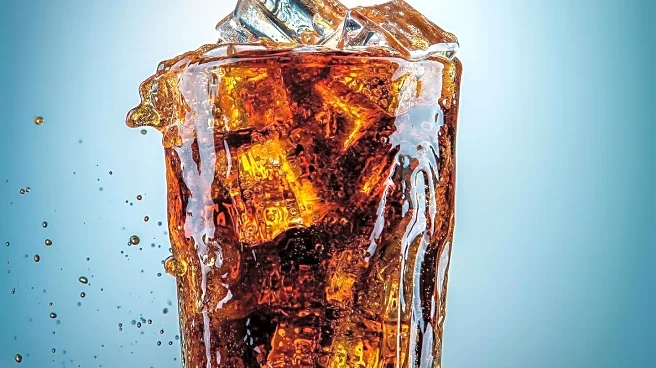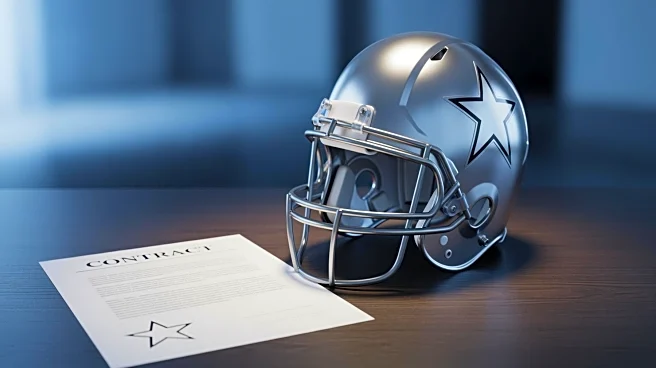What's Happening?
The American Beverage Association has responded to concerns about soda addiction, highlighting the availability of healthier alternatives such as sparkling waters and zero-sugar sports drinks. This comes
as more than 60% of American adults report consuming sugar-sweetened beverages daily, according to the Centers for Disease Control and Prevention. Experts suggest that soda consumption is driven by intense marketing strategies that associate these drinks with various life events, making them a default beverage choice. The addictive nature of soda is attributed to its ability to hijack the brain's reward system, leading to cravings. Despite the health risks, many consumers, like Ken Frondorf from Cincinnati, continue to consume large quantities of soda, citing taste preferences.
Why It's Important?
The widespread consumption of soda has significant implications for public health, contributing to issues such as obesity and diabetes. The addictive properties of soda, combined with strategic marketing, have normalized its consumption, posing challenges for health initiatives aimed at reducing sugar intake. The beverage industry's shift towards offering healthier alternatives reflects a growing consumer demand for wellness-oriented products. However, the persistence of soda addiction highlights the need for more effective public health strategies and education to combat the ingrained habits and preferences that drive soda consumption.
What's Next?
As the beverage industry continues to innovate, there may be increased efforts to promote healthier options and reduce the sugar content in popular drinks. Public health campaigns could focus on educating consumers about the risks associated with excessive soda consumption and the benefits of choosing healthier alternatives. The response from soda manufacturers and the American Beverage Association suggests a potential shift in marketing strategies to align with health trends, although the effectiveness of these changes remains to be seen.
Beyond the Headlines
The normalization of soda consumption raises ethical questions about the role of marketing in shaping dietary habits. The industry's influence on consumer choices underscores the need for regulatory measures to ensure that marketing practices do not undermine public health objectives. Additionally, the cultural significance of soda as a staple in American life may require a broader societal shift to prioritize health over convenience and taste.










